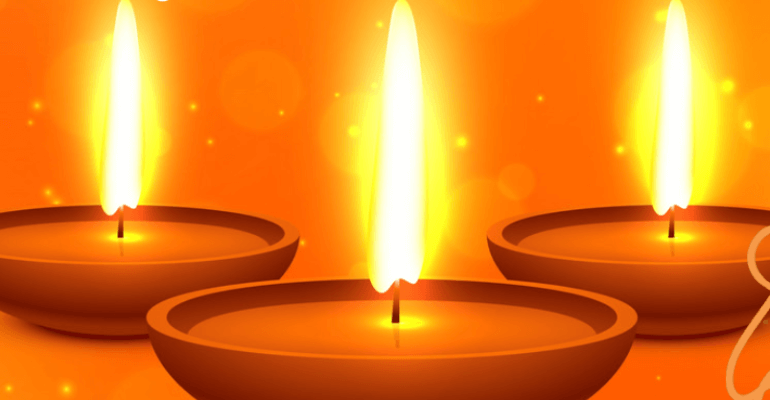Excerpt of an article by Swami Chinmayananda
‘Deep-avali’ means rows and rows of light. This is the goal of our culture. Whether it is many cultures put together, or a particular religion being evolved in every other nation. What is the attempt? To bring the better man out of the vulgar, the animal, the baseman. When does an individual become civilized and we say that he is a cultured, educated man? When he is able to control his lower passions to an extent.
The good, cultured man also feels lust. Don’t say “No.” He also feels angry. But like an animal with no control – when the anger comes you express the anger, when lust comes you express the lust. Then he is an uncultured man. He, who is in spite of the anger knows this is not the right time, right place, right person. And therefore swallow it down and brings a smile on the face, is called a cultured man. Isn’t it?
So a readiness to make that sacrifice and win over the lower nature, is to light up the lamp of knowledge, wisdom and beauty in yourself. So Deepavali (Diwali) is, a reminder to the community that there is a greater way of cultured living, than the mere animal level. Whatever you feel, you just do it, that is not it! You must look around. You’ve been given a discriminative intellect; you are not an animal.
The animal is allowed to do because he doesn’t know how to discriminate. But man is supposed to live from the intellectual standpoint. And don’t do things which will bring harm to yourself later on, or sorrow to other members at this moment. That means you have to conquer your own selfish, immediate demand for the sake of the others. This is what Deepavali (Diwali) really stands for.
Whenever thus, the lower nature in us is conquered, and we maintain the higher values of life and come to live them, there is a glow of beauty in you…that is Deepavali.
To tune our minds to Divinity and start new, we welcome the new year with an evening of soulful bhajans by our very own families, welcoming the festival of lights!
Register for Deepanjali here.
Those who would like to do Lakṣmī Pūjā in their homes may click here for Lakshmi Pūjā instructions (very similar to what we did in Navarātrī).

